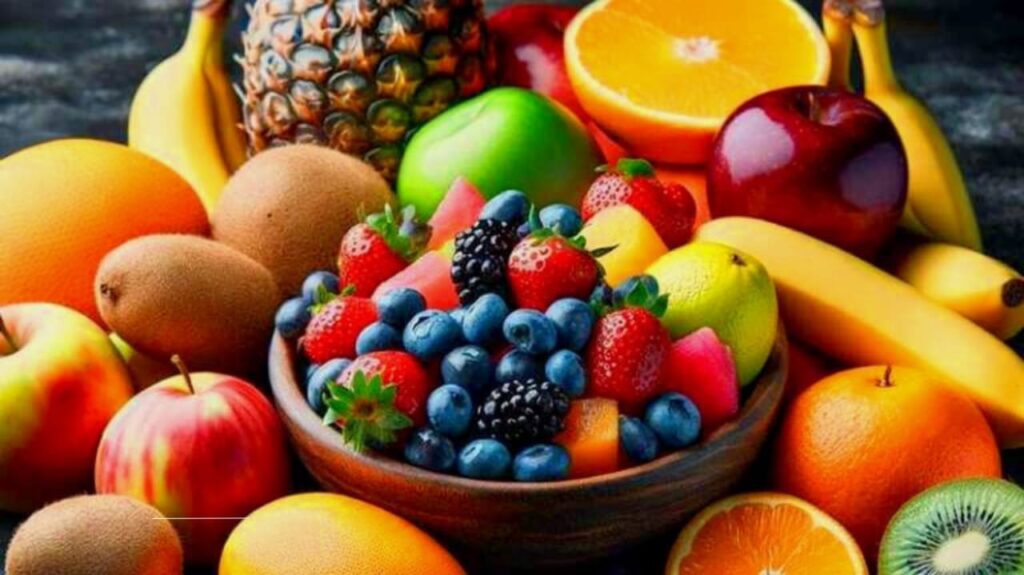
When you think of protein, fruits might not be the first thing that comes to mind. However, certain fruits pack a surprising protein punch alongside essential vitamins, minerals, and antioxidants. Including these in your diet can help you meet your fitness goals—whether you’re aiming to build lean muscle, shed extra pounds, or simply maintain a balanced lifestyle. Let’s explore nine high-protein fruits that are delicious, versatile, and backed by nutrition science.
Guava: The Protein Powerhouse
Guava tops the list with about 4.2 grams of protein per cup, along with 9 grams of fiber. This tropical fruit is also rich in vitamin C (four times more than an orange), which supports immune health and collagen production for muscle repair. A 2020 study in the Journal of Functional Foods highlighted guava’s ability to stabilize blood sugar, making it ideal for curbing cravings during weight loss. Blend it into smoothies or enjoy it fresh with a sprinkle of chili powder for a savory kick.
Avocado: More Than Just Healthy Fats
While avocados are famous for their heart-healthy monounsaturated fats, a medium-sized avocado also provides 4 grams of protein. Its creamy texture and fiber content (13 grams per fruit) keep you full longer, reducing overeating. Research from the Nutrition Journal found that individuals who ate half an avocado with lunch reported a 40% reduction in hunger for hours. Add slices to salads, smash them on toast, or mix into post-workout shakes for sustained energy.
Jackfruit: The Plant-Based Meat Alternative
Jackfruit delivers 3 grams of protein per cup and a meat-like texture when cooked. It’s also packed with potassium (739 mg per cup), which aids muscle recovery by balancing electrolytes lost through sweat. A 2017 review in Food Science and Nutrition noted jackfruit’s potential to reduce inflammation, crucial for athletes. Use young jackfruit as a pulled-pork substitute in tacos or blend ripe jackfruit into desserts for natural sweetness.
Blackberries: Fiber and Protein Combo
With 2 grams of protein and 8 grams of fiber per cup, blackberries are a dual-action fruit for weight management. Their high antioxidant content fights oxidative stress from intense workouts. A Harvard study linked regular berry consumption to slower age-related muscle decline. Stir them into yogurt, oatmeal, or enjoy them as a portable snack.
Apricots: Dried or Fresh, Packed with Nutrients
Dried apricots offer 1.4 grams of protein per ¼ cup, while fresh apricots provide 1 gram per fruit. They’re also rich in vitamin A, which supports muscle tissue health. The iron in apricots (0.6 mg per serving) helps transport oxygen to muscles during exercise, improving endurance. Pair dried apricots with nuts for a balanced snack or add fresh slices to grilled chicken salads.
Kiwi: Tiny Fruit, Big Benefits
One cup of kiwi contains 2.1 grams of protein and 167% of your daily vitamin C needs. Its enzymes, like actinidin, aid protein digestion, maximizing nutrient absorption. A 2018 trial in the Asia Pacific Journal of Clinical Nutrition found that kiwi consumption improved sleep quality, critical for muscle recovery. Add kiwi to smoothies or slice it over cottage cheese for a protein-rich breakfast.
Peaches: Hydration and Muscle Support
A medium peach provides 1.4 grams of protein and 88% water content, keeping you hydrated during workouts. The fruit’s natural sugars replenish glycogen stores without spiking blood sugar. A study in Nutrients linked peach polyphenols to reduced exercise-induced inflammation. Grill peaches with cinnamon for a dessert or puree them into marinades for lean meats.
Oranges: Vitamin C Meets Moderate Protein
Oranges offer 1.3 grams of protein per cup and over 100% of your daily vitamin C. Vitamin C boosts collagen synthesis, protecting joints during weight training. Research from the American Journal of Clinical Nutrition shows that vitamin C can enhance fat oxidation during exercise. Pair orange segments with almonds or add zest to quinoa salads for extra flavor.
Cantaloupe: Low-Calorie Hydration
With 1.5 grams of protein per cup and 90% water content, cantaloupe is perfect for cutting calories without sacrificing volume. Its beta-carotene supports eye health, and potassium (427 mg per cup) prevents muscle cramps. Freeze cantaloupe cubes for a refreshing post-workout treat or mix with prosciutto for a protein-packed appetizer.
Practical Tips for Maximizing Benefits
Combine these fruits with other protein sources like Greek yogurt, nuts, or legumes to create balanced meals. For example, layer blackberries and kiwi with yogurt for a parfait, or toss avocado into a chicken wrap. Timing matters too: eat protein-rich fruits within 30 minutes post-workout to kickstart muscle repair.
Why Trust This Guide?
Nutritionists emphasize that while fruits shouldn’t replace primary protein sources like meat or tofu, they add variety and essential nutrients often missing in traditional high-protein diets. Registered dietitian Dr. Sarah Collins notes, “Fruits like guava and avocado provide ‘complete nutrition’—protein, fiber, and healthy fats—which work synergistically for sustained energy and muscle health.”
Final Thoughts
Incorporating high-protein fruits into your diet is a simple, flavorful way to enhance muscle growth, manage weight, and boost overall wellness. Experiment with different combinations and preparations to keep meals exciting. Remember, consistency and variety are key to long-term success.
